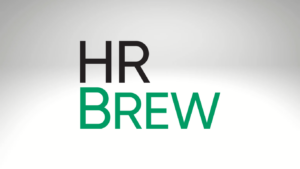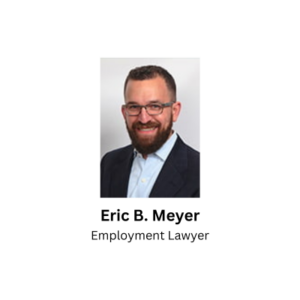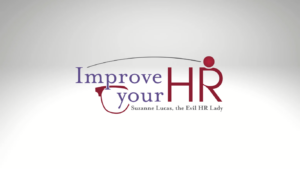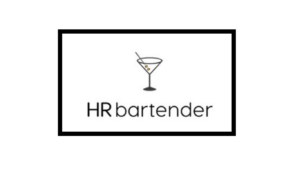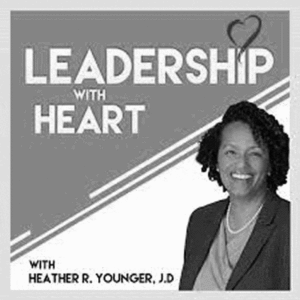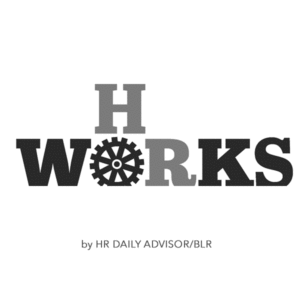As fewer employees adopt AI, new strategies and technology can help HR drive up usage.
Monthly Archives: November 2024
A “Situations and Solutions Finder” to make ADA job accommodations easier to provide? Yes, please.
Turning Skills into Opportunities: The Value of a Non-Traditional Career Path in a Shifting Business Landscape
No matter the sector—whether it’s tech, manufacturing, or energy—industries are evolving rapidly, driven by factors like AI, globalization, and increasing regulatory demands. One key factor unites companies leading this change: the significant role leadership plays in driving and navigating these shifts. In many organizations, the C-suite has expanded to include new roles that address emerging […]
The post Turning Skills into Opportunities: The Value of a Non-Traditional Career Path in a Shifting Business Landscape appeared first on HR Daily Advisor.
Navigating the Gig Economy: Pros and Cons of Leveraging Independent Contractors
When it comes to staffing an organization, there are more options than the traditional full-time, closely supervised W-2 employee. Many organizations leverage independent contractors, a type of worker that is treated differently for both employment law and tax purposes, and that offers both advantages and disadvantages when compared to traditional workers. Understanding Independent Contractors Independent […]
The post Navigating the Gig Economy: Pros and Cons of Leveraging Independent Contractors appeared first on HR Daily Advisor.
‘Your Body, My Choice’ Posts Are Spreading Post-Election. Anyone Who Says This Should Be Fired–Immediately
Last week, Nick Fuentes, who Wikipedia describes as “an American far-right political pundit and live streamer who promotes white supremacist, misogynistic, and antisemitic views,” tweeted this: Your body,
The post ‘Your Body, My Choice’ Posts Are Spreading Post-Election. Anyone Who Says This Should Be Fired–Immediately appeared first on Improve Your HR.
DOL Confirms Cybersecurity Guidance Applies to Health and Welfare Plans
On September 6, 2024, the U.S. Department of Labor (DOL) confirmed its cybersecurity guidance applies to all employee benefit plans, including health and welfare plans. In 2021, the DOL issued guidance providing best practices in cybersecurity for plan sponsors, plan fiduciaries, recordkeepers, and plan participants. The retirement plan industry took notice and has generally made […]
The post DOL Confirms Cybersecurity Guidance Applies to Health and Welfare Plans appeared first on HR Daily Advisor.
The Value of Compliance Subscription Services
Simplify compliance through the value of a subscription that takes care of tracking and complying with employment laws, so you can focus on your business.
The post The Value of Compliance Subscription Services appeared first on hr bartender.
21 Types of Employment: Your Hire-To-Retire Guide
The Gen Z Effect: Reshaping work culture and leadership
The world of work is evolving—and Gen Z is the catalyst for change. As this generation’s influence grows, their unique values, work habits,…
The post The Gen Z Effect: Reshaping work culture and leadership appeared first on HiBob.
380: How to Hold People Accountable After Delegation
HR Works Podcast: The Post-Military Pivot
What is a QSEHRA? | BerniePortal
Providing health benefits is one of the most important ways small businesses can attract and retain top talent. However, for many small employers, the financial burden of offering traditional group health insurance is a consequential barrier. Qualified Small Employer Health Reimbursement Arrangement (QSEHRA) is a flexible, cost-effective solution that helps small businesses provide their employees with valuable healthcare benefits without breaking the bank.
Short-Term vs. Long-Term Disability | BerniePortal
Life can be unpredictable, and while we hope to stay healthy and active throughout our careers, unexpected injuries or illnesses can happen at any time. When the unexpected strikes,
disability insurance
provides a safety net for employees. Whether you’re just starting your career or you’ve been in the workforce for years, it’s important to understand disability insurance options and why they are a crucial part of your financial plan.
Short-Term Disability
As the name suggests, short-term disability insurance provides temporary income to employees experiencing brief stints of work leave. Below is an overview of short-term disability.
Duration of Coverage: Short-term disability plans typically cover an employee for 3-6 months; however, each policy is nuanced. The length of coverage depends on the policy and state provider.
Qualifying Period: The typical qualifying period for short-term disability is 14 days. A qualifying period is also known as a waiting or elimination period. It defines the amount of time that an employee must wait for coverage approval. The period begins the day the employee becomes disabled, not the day the claim is filed.
Benefit Amount: Short-term disability policies typically pay 40-70% of an employee’s pre-disability income.
Common Uses: Childbirth, surgery recovery, and temporary illnesses
Long-Term Disability
Long-term disability insurance, on the other hand, is designed to provide financial support for a much longer period of time to account for severe or prolonged injury.
Duration of Coverage: Long-term disability plans are built to cover employees for years. Two years is typically the minimum, but employees can be covered until retirement age at 65.
Qualifying Period: Employees using a long-term disability policy must endure a longer waiting period. The qualifying period for long-term disability ranges from 30 to 180 days.
Benefit Amount: Long-term disability policies pay anywhere from 50-80% of an employee’s pre-disability income.
Common Uses: Chronic illness and severe accidents
Is Offering Short-Term and Long-Term Disability Required?
Employers are not required to offer short-term or long-term disability insurance benefits. Similar to paid time off policies, disability insurance is an opportunity for employers to attract and retain top talent.
It is important to remember that employers are required to protect medical leave mandated by the Family and Medical Leave Act (FMLA). The FMLA requires that certain employees receive up to 12 weeks of unpaid, job protected leave. Additionally, health benefits cannot be revoked from employees during this period. FMLA and disability insurance serve different but complementary roles when it comes to taking medical leave. If you are dealing with a medical issue and need time off, understanding both FMLA rights and disability insurance will ensure that you receive both income support and job protection while you recover.
What If an Employer Lacks Disability Coverage?
HR departments should be transparent and open with employees about the absence of disability insurance policies, as this information is critical for employees’ financial planning and well-being. Clearly communicating that disability coverage is not offered allows employees to make informed decisions about their personal insurance needs and seek alternative coverage options if necessary. Additionally, HR professionals should remain informed about supplemental policies. For example, accrual PTO policies can alleviate some of the stress that coincides with disability leave.
Similarly, HR professionals, with their deep understanding of the diverse roles within their company, can be proactive in exploring potential solutions for employees who lack disability coverage, such as offering the option to transition to reduced roles or flexible work arrangements to accommodate employee needs during times of illness or injury.
Additional Resources
You can stay informed, educated, and up to date with important HR topics using BerniePortal’s comprehensive resources:
BernieU—free online HR courses, approved for SHRM and HRCI recertification credit
BerniePortal Blog—a one-stop shop for HR industry news
HR Glossary—featuring the most common HR terms, acronyms, and compliance
Resource Library—essential guides covering a comprehensive list of HR topics
HR Party of One—our popular YouTube series and podcast, covering emerging HR trends and enduring HR topics
Community—the HR Party of One Community forum, a place devoted to HR professionals to ask questions, learn more, and help others

